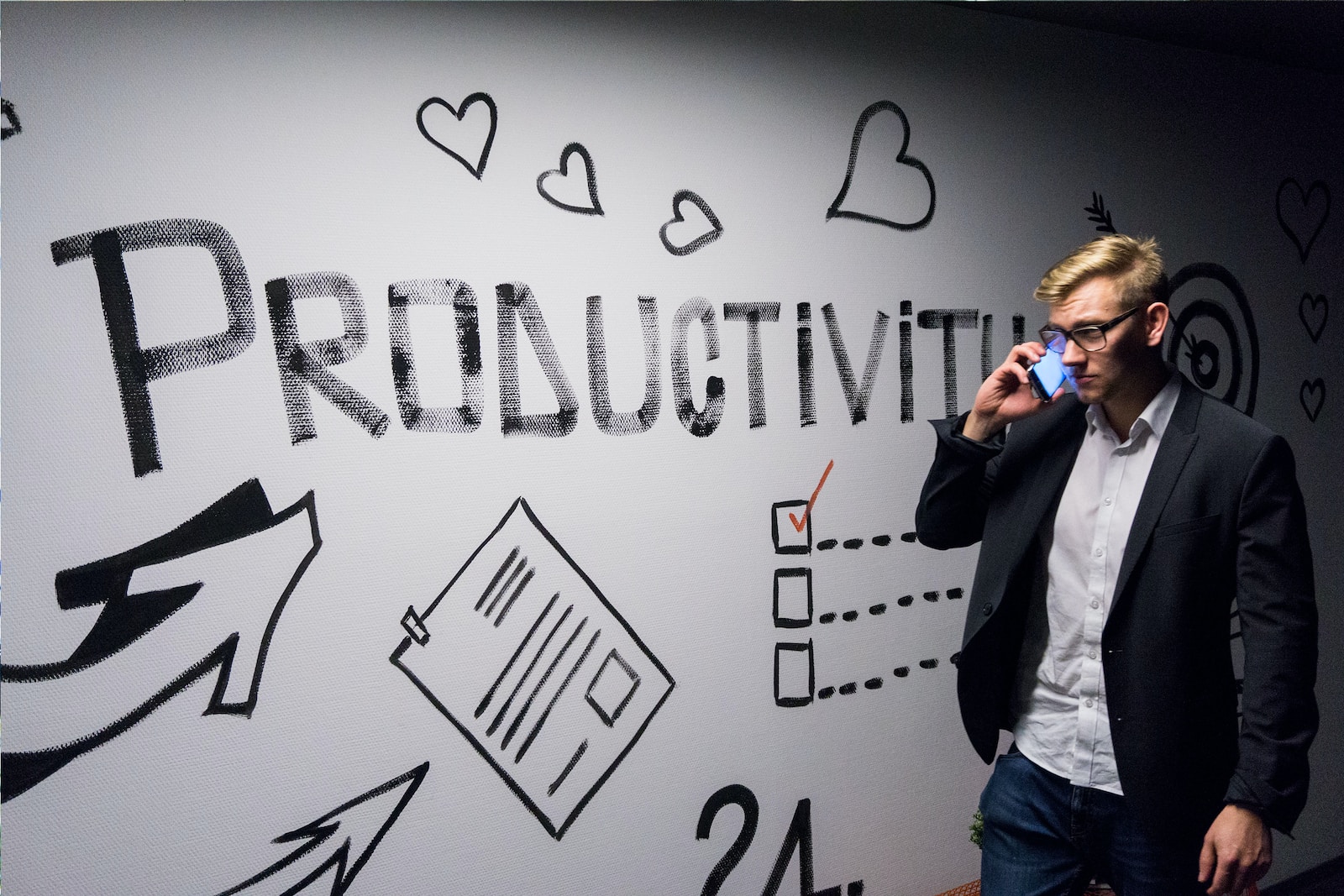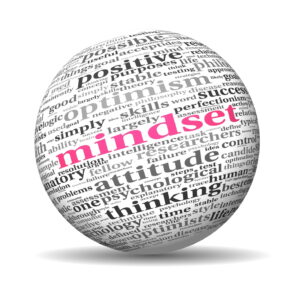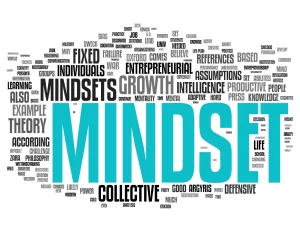In today’s fast-paced, competitive world, a high-performance mindset is essential for achieving personal and professional success.
This mindset is characterized by a strong belief in one’s abilities, the willingness to embrace challenges, and a dedication to continuous growth and improvement.
In this comprehensive guide, we will explore the key components of a high-performance mindset and provide practical steps for cultivating it in your own life.
By embracing this higher mindset, you can unlock your full potential and achieve extraordinary results in all aspects of your life.
What is a High Performance-Mindset?
A high-performance mindset is a set of beliefs, attitudes, and behaviors that enable individuals to consistently perform at their best and achieve exceptional results.
It is the foundation for achieving excellence and success in any area of life, from business to sports to personal growth.
At its core, a high-performance mindset is about embracing a growth mindset, which is the belief that you can improve and develop through effort and experience.
It involves setting goals, focusing on the process, seeking feedback and learning from failures, and maintaining a positive and resilient attitude in the face of challenges.
The Importance of a High-Performance Mindset
A high-performance mindset is crucial for both personal and professional success. It allows individuals to approach challenges with a proactive and positive attitude and to persevere through obstacles and setbacks.
This mindset can impact various areas of your life, including your career, personal relationships, and overall well-being. Cultivating a high-performance mindset can lead to a more fulfilling and successful life.
Key Components of a High-Performance Mindset
A high-performance mentality is comprised of a number of essential components that work in conjunction with one another. These are the following:
Growth mindset: A growth mindset is the acceptance of the concept that one’s talents and intellect may be developed through the application of work and experience as opposed to being fixed and immutable.
Self-Awareness: Self-awareness is the process of cultivating a knowledge of one’s own feelings, ideas, and actions, as well as the application of this awareness in order to better manage stress, build resilience, and make better decisions.
Goal Setting: The process of determining one’s values and priorities and then developing objectives that are clear, attainable, and important to oneself is referred to as goal setting.
Process Focus: Process focus refers to the practice of putting one’s attention, rather than just on the end result of one’s efforts, on the process by which those goals are accomplished.
Feedback and Learning: Feedback and learning is actively seeking out opportunities to get feedback, gaining knowledge from errors and setbacks, and working to continually improve one’s performance.
Resilience and Positivity: Positivity and resiliency refer to the ability to maintain a good attitude despite adversity and the capacity to recover quickly from difficult situations.
Strong Relationships: Building and sustaining positive, supportive connections with other people, both in one’s personal life and one’s professional life, is an essential component of developing strong partnerships.
Developing a High-Performance Mindset
You may build a mentality that is conducive to great performance by following these three steps:
1. Develop self-awareness
To start, focus on your existing ideas, attitudes, and actions and think about how they affect your performance. Then, think about how you can change those things.
Find any self-doubts or limiting beliefs that may be holding you back, and then concentrate on building a better awareness of your strong points, your weak points, and the areas in which you have room to improve.
2. Embrace a growth mindset
Develop a “growth mindset” by centering your attention on learning and improvement rather than striving for perfection or being paralyzed by the fear of making mistakes. Consider obstacles to be chances for personal development and be receptive to both positive and negative input.
3. Take action
Create a set of goals that can be achieved and a strategy to get there. Maintain a positive attitude in the face of obstacles and failures, keep your attention on the things you can influence, and take some measured risks.
Keep in mind that excellent performance can only be attained by persistent work and unwavering devotion over the course of time.
The Role of Self-Awareness in a High-Performance Mindset
Self-awareness is a critical component of a high-performance mindset.
It involves understanding your emotions, thoughts, and behaviors and using this knowledge to manage stress, build resilience, and make better decisions.
Developing self-awareness can help you identify areas for growth and improvement and enable you to maintain a positive and proactive attitude in the face of challenges.
How to Enhance Self-Awareness
To increase your self-awareness, consider the following strategies:
- Regularly engage in self-reflection, examining your thoughts, emotions, and behaviors.
- Seek feedback from others and be open to constructive criticism.
- Practice mindfulness and meditation to develop a greater sense of present-moment awareness.
- Keep a journal to track your thoughts, feelings, and experiences.
Building Resilience and Positivity
Resilience and positivity are essential aspects of a high-performance mindset. These qualities enable you to maintain a positive attitude, even in the face of adversity, and to bounce back from setbacks and challenges.
By developing resilience and positivity, you can better cope with stress and maintain a higher mindset in both your personal and professional lives.
Strategies for Developing Resilience and Positivity
To build resilience and positivity, consider the following strategies:
- Focus on your strengths and accomplishments, rather than dwelling on failures or setbacks.
- Practice gratitude, expressing appreciation for the positive aspects of your life.
- Develop healthy coping strategies, such as exercise, meditation, or connecting with supportive friends and family members.
- Surround yourself with positive influences, including uplifting people, books, and media.
The Importance of Goal Setting
The ability to define objectives that are understandable, attainable, and meaningful is essential to developing a high-performance mentality.
Establishing goals give you the ability to focus your efforts, keep your motivation up, and monitor your progress are all benefits that come from setting objectives.
You may accomplish remarkable outcomes in every facet of your life if you take the time to plan out your values and priorities, and then work toward achieving objectives that are in line with those values and priorities.
Tips for Effective Goal Setting
When planning out your future endeavors, keep the following hints in mind:
- Make sure that your goals are SMART, which stands for specific, measurable, attainable, relevant, and time-bound.
- Create smaller, more doable stages in order to accomplish greater goals.
- Maintain a consistent review schedule and make any necessary adjustments to your goals.
- Honor your achievements and congratulate yourself on reaching new benchmarks as often as possible.
Setting clear, achievable, and meaningful goals is central to a high-performance mindset. Establishing goals allows you to focus your efforts, maintain motivation, and measure your progress. By setting and working towards goals that align with your values and priorities, you can achieve extraordinary results in all aspects of your life.
Focusing on the Process in a High-Performance Mindset
A high-performance mindset emphasizes the importance of focusing on the process rather than solely concentrating on the end result.
By concentrating on the journey and the steps required to achieve your goals, you can maintain motivation, increase your enjoyment of the task, and develop a deeper understanding of your chosen field or endeavor.
How to maintain a process focus
To maintain a process focus, consider the following strategies:
- Break complex tasks into smaller, more manageable steps.
- Develop routines and habits that support your progress towards your goals.
- Focus on the present moment and avoid dwelling on past failures or future anxieties.
- Embrace the learning that comes with setbacks and challenges and use these experiences to grow and improve.
Seeking Feedback and Learning in a High-Performance Mindset
Continuous learning and improvement are fundamental aspects of a high-performance mindset. Seeking feedback and learning from failures and setbacks can help you refine your strategies, develop new skills, and ultimately achieve better results.
Embracing a commitment to learning can also increase your enjoyment of your work and enhance your sense of purpose and fulfillment.
Tips for seeking feedback and learning
To seek feedback and embrace learning, consider the following strategies:
- Actively solicit feedback from peers, mentors, and supervisors.
- Reflect on your experiences, and identify lessons learned from failures and setbacks.
- Engage in professional development opportunities, such as workshops, courses, or conferences.
- Stay up to date with the latest research and trends in your field, and continuously seek to expand your knowledge and skills.
The Role of Strong Relationships in a High-Performance Mindset
Building and maintaining strong relationships is a critical component of a high-performance mindset.
Healthy, supportive relationships can provide emotional, practical, and intellectual support, helping you to navigate challenges and achieve your goals.
Strong relationships can also enhance your overall well-being and satisfaction in both your personal and professional lives.
Strategies for developing strong relationships
To build strong relationships, consider the following strategies:
- Cultivate empathy, understanding, and compassion for others.
- Develop effective communication skills, including active listening and providing constructive feedback.
- Be reliable and dependable and honor your commitments to others.
- Show appreciation and gratitude for the contributions of others and celebrate their successes.
Embracing Sustainable Growth in a High-Performance Mindset
A high-performance mindset is not just about achieving extraordinary results but also about embracing sustainable growth and well-being.
This requires a holistic approach, encompassing all aspects of your being, including your mind, body, emotions, and spirit.
By prioritizing self-care and well-being, you can maintain a higher mindset and achieve long-term success in all areas of your life.
Tips for embracing sustainable growth
To embrace sustainable growth, consider the following strategies:
- Prioritize self-care, including regular exercise, a healthy diet, and sufficient sleep.
- Develop stress-management techniques, such as meditation, deep breathing, or mindfulness.
- Set boundaries and maintain a healthy work-life balance.
- Engage in activities that nourish your mind, body, and spirit, such as hobbies, socializing, or volunteering.
In conclusion, cultivating a high-performance mindset can unlock your full potential and help you achieve extraordinary results in all aspects of your life.
You may position yourself for success and fulfillment by adopting a growth mindset, cultivating self-awareness, formulating a plan of action, defining objectives, maintaining a focus on the process, actively seeking feedback and opportunities to learn, and cultivating good connections.
If you make sustainable growth and well-being a top priority, you may increase the likelihood that your accomplishments will have both immediate and long-term significance.





No comments! Be the first commenter?